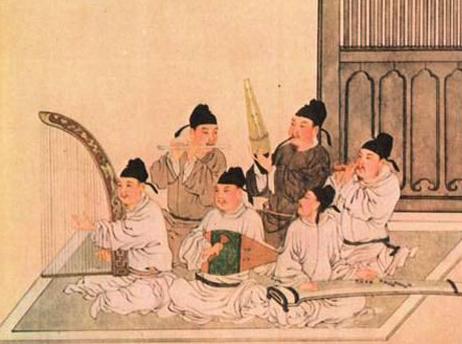
"If a man lacks the human virtues,what has he to do with ritual?If a man lacks the human virtues,what has he to do with music?"To Confucius,music and human virtue worked much like gears turning in a finely tuned mechanism.Like the cogs of a machine grabbing each other and propelling each gear forward,human virtue cannot move forward without music.Similarly,one can't move forward as a musician or student of music without the virtues of Confucianism.In this paper I will examine the relationship between music and Confucius teachings and the extreme impact that music has had on Confucius teachings and the impact that one of the world's greatest thinkers had on music.
Kong Qiu was born in the Lu province of China in the year 551 BCE.As a young man,he entered politics in hopes of restoring the peace of prosperity that once flourished in China's previous years,particularly the early Zhou period.Unfortunately,he was unsuccessful in implementing his policies and ended his political career.Kong Qiu then chose pursue another endeavor:teaching.His knack for teaching was quite apparent and many of his lessons were recorded by his students.These recordings eventually became what are known as the Analects.His brilliance as a teacher earned him the name Kong Fuzi,or"Master Kong,"which in Latin form is"Confucius"(Hooker).
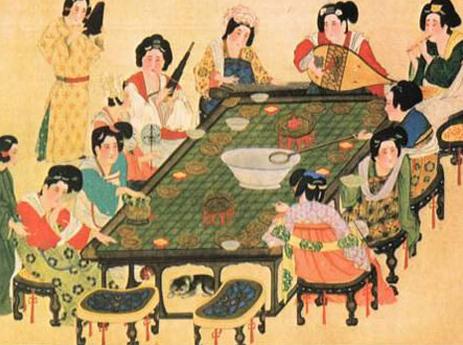
The ultimate goal of Confucius's teachings was to obtain ultimate righteousness in his or her personal and professional life and to become a gentleman rather than a petty person(Hooker)(other source).To achieve this ultimate goodness,a student of Confucius must consciously and continually seek education while completely transforming one's self to Confucian ethics and beliefs(Wei-ming).Among these ethics and beliefs are the following:innate goodness in all human beings,sympathy,and obedience or what is known as filial piety.Confucius believed that one's education could not be complete without musical education,as illustrated by the following quote from Confucius himself:"To educate someone,you should start with poems,emphasize of ceremonies,and finish with music."Furthermore,Confucius taught all of his students six arts that he felt were necessities to a good education:ceremonies,shooting,chariot driving,writing,mathematics,and music(Yue).
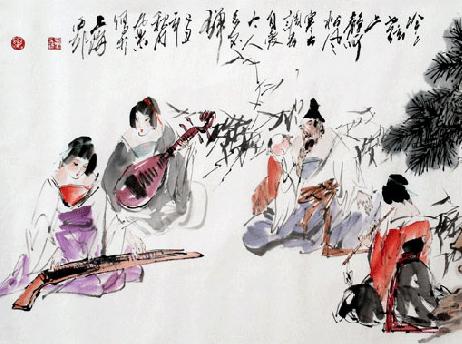
Music was an important part of Confucius's teachings.He himself was said to have been a brilliant musician.In fact,he is credited with composing some of the earliest written music that still exists today:"Youlan,"also known as"The Solitary Orchid."He also composed music for the entire Book of Songs,a collection of traditional poems(Jones).In an anecdote,Confucius's insatiable thirst for knowledge and achievement in music is illustrated when it was said that while learning the Guqin from musician Shi Xiangzi,Confucius was not satisfied with merely performing the music well and practiced with great discipline until his performance was perfect("Confucius and Music").
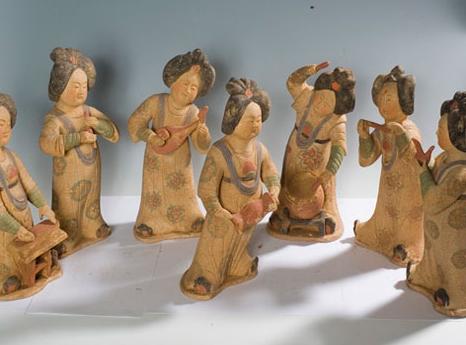
One reason for Confucius's great love for and advocacy of music may be because in the period which he lived,the Spring and Autumn period of the Zhou dynasty,the system of rites and music of the Western Zhou period which he loved so much was being destroyed by the fact that music of the lower classes were becoming popular("Music").Moreover,different regions bred different styles and genres of music,which may have served as a constant reminder to Confucius of the disunity of China,when he wanted desperately to restore the unity.Contrary to the time of Confucius,the early Zhou period was considered the foundation and source of much of the music and musical ideas that existed at the time.Confucius wanted to bring the prosperity of the early Zhou period back,and one of the reasons for its prosperity,according to Confucius,was its system of court and ceremonial music rituals(Liang).One state in particular was criticized for its music,whose songs were sexually expressive:the state of Zheng.Confucius stated,"Once the music of Zheng is popular,corruptions will be everywhere(Yue)."
In his teachings,Confucius recognizes that there is some sort of order of the heaven and the earth and believed that human nature paralleled the nature and order of the heaven and the earth in some way.A testament to how highly he regarded music,Confucius said that the musical composers of the past fully understood the order of the heaven and earth,and that by performing the music of these past musicians,one could capture the musicians'spirit and understanding of the divine hierarchy(Hooker).
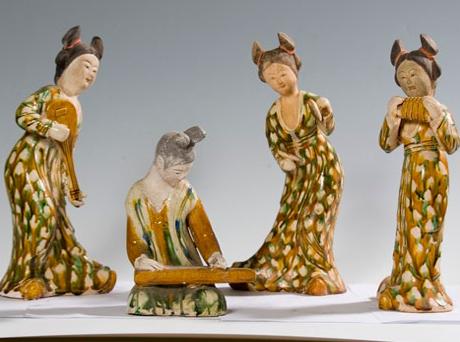
Confucius's beliefs about music also transferred to the teachings of one of his followers,Meng-Tzu,known in the west by his Latinized name,Mencius.Mencius's ideas about the importance of music aligned with those of Confucius.Mencius even went as far as to say that if a King loves good traditional music of the past,then his kingdom and rule will be improved.He used the logic that if the King and those under the King's rule enjoy the same music,then those under his rule will respect and relish the King and his system of rule("The Works of Mencius").
Hopefully this paper has pointed out the immense importance of music in the virtues of Confucian thinking and vice versa.Besides being a great musician himself,he was also a great teacher of music,and perhaps the large volume and many different styles of music that we enjoy today wouldn't exist if it weren't for the teachings of Confucius and his students composing and playing music.





